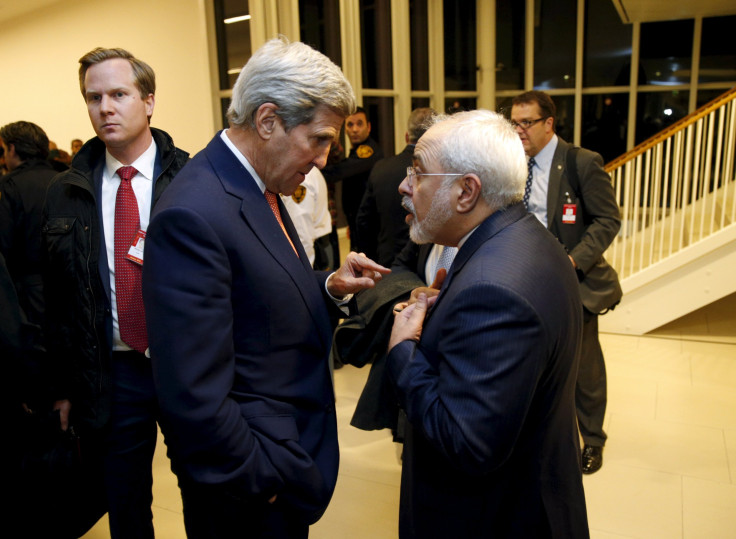US Concedes $400 Million Payment To Iran Was ‘Leverage’ For Release Of Prisoners

During a press briefing Thursday, spokesman for U.S. Department of State John Kirby conceded for the first time that $400 million paid to Iran in January was “leveraged” to ensure the release of American citizens. It was the first acknowledgement by the Obama administration of a link between an Iran-U.S. prisoner swap and the money paid to Iran as part of a settlement awarded to the Middle Eastern country by a court in The Hague.
When the Wall Street Journal first reported this story — and a connection between the two events — on Aug. 3, Kirby had said: “The negotiations over the settlement of an outstanding claim ... were completely separate from the discussions about returning our American citizens home. ... Not only were the two negotiations separate, they were conducted by different teams on each side, including, in the case of The Hague claims, by technical experts involved in these negotiations for many years.” President Barack Obama had also denied the Journal’s claims.
On Thursday, however, when questioned by reporters about the payment, Kirby had a somewhat different answer.
“We deliberately leveraged that moment to finalize these outstanding issues nearly simultaneously. It’s already publicly known that we returned to Iran its $400 million in that same time period as part of The Hague settlement agreement. With concerns that Iran may renege on the prisoner release given unnecessary delays regarding persons in Iran who could not be located as well as, to be quite honest, mutual mistrust between Iran and the United States, we, of course, sought to retain maximum leverage until after American citizens were released. That was our top priority.”
Kirby insisted that negotiations for the release of prisoners and the payment of $400 million to Iran — “were independent efforts” and that “they’re connected in the sense that they came together at the same time.” Kirby also said “this wasn’t a case of ransom,” pointing out repeatedly that “it’s their [Iran’s] money.”
Typically, a ransom is money paid to someone before the release of a prisoner, and given how in this case, Iran released the U.S. citizens before the money was paid, it can’t strictly be called ransom. And it is true that the U.S. would have had to pay the money to Iran whether there was a prisoner deal going on or not. So, technically speaking, the U.S. did not violate its stated policy of not paying ransoms.
But Kirby’s statements from Thursday are still a deviation from the earlier stance maintained by the Obama administration.
© Copyright IBTimes 2024. All rights reserved.




















